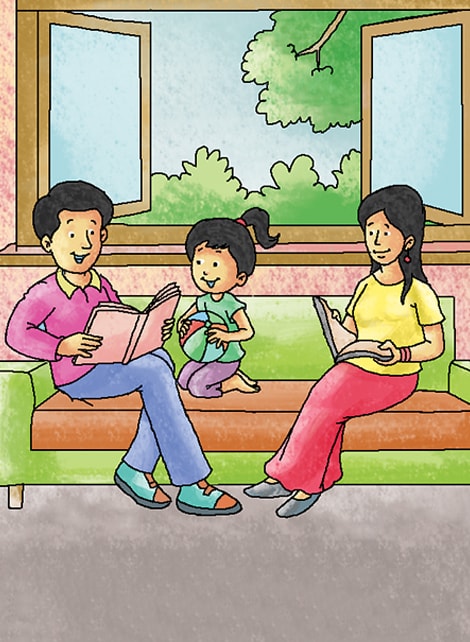Special Awareness Days
January 24th – International Day of Education

Ready to Order?
If you are ready to order, please contact Customer Service:
Telephone: 1 (800) 361-6128 Fax: 1 (800) 563-9196
Introduction
January 24th, 2019 marked the first ever International Day of Education. The United Nations General Assembly declared this special day to empower all countries to increase their political commitment to education so that all children and youth may receive the benefits of a full education.
Today:
- 262 million children and youth still do not attend school.
- 617 million children and adolescents cannot read and do basic math.
- Less than 40% of girls in sub-Saharan Africa complete lower secondary school.
- Some four million children and youth refugees are out of school.
In her statement about International Day of Education, UNESCO Director General Audrey Azoulay said: "Education is the most powerful force in our hands to ensure significant improvements in health, to stimulate economic growth, to unlock the potential and innovation we need to build more resilient and sustainable societies. We will not succeed in breaking the cycle of poverty, mitigating climate change, adapting to the technological revolution, let alone achieve gender equality, without ambitious political commitment to universal education.”
To read more on the goals and plans for International Day of Education, visit:

Activity Bursts:
Grades K-2
Language, Vocabulary
Gather students and invite answers to the following questions:
- Why do you think we go to school?
- What do you think we learn in school?
- What would you miss the most if you could not go to school?
Watch the following video about reasons why children go to school. Ask students to watch for even more reasons than the ones you have already discussed.
After students have responded to the questions, have them share what they think are the most important things they learn in school.
Provide the sentence starter “I go to school to learn about…” and ask each student to add their own completion. If possible, record students sharing their sentences one by one and post the video on your school or parent connection website.
(Note: Depending on privacy considerations in your school, students could print their answers on pieces of paper and just record their voices reading the statements aloud.)
Close by explaining that all children have the right to go to school but that there are places in the world where children can’t go because they are needed at home to do chores, or their families can’t afford to pay for school, or the school is far away and they have no way to get there. Remind students that they are lucky to live in Canada where children can go to school and learn about so many fun and interesting things!
Grades 3-5
Language, Vocabulary, Non-verbal Communication
Explain that children in Canada are very lucky to be provided with free quality education and that there are other countries in the world where children cannot go to school or learn virtually. Share the information in the introduction.
Prompt discussion by asking:
- Why do you think every child deserves the right to go to an education?
- Why do you think some children in the world cannot go to school or learn virtually?
- Why might it be challenging for certain groups to attend school in some places (e.g., children from minority ethnic groups, children with disabilities, and children living in conflict areas)?
- Why do you think that some students cannot even have access to online school?
Share the video, “I Want to Go to School,” created as part of a campaign called “Children Have Rights.”
Debrief after viewing by asking:
- How do you think the boy in the video feels about not being able to go to school?
- Why is he unable to attend school even though the Charter of Rights of the Child states that every child should have the right to a free education?
Ask students to write a letter to the local paper, explaining why they think every child in the world should have the right to free education. Present the letters to the class and select several to send to the local paper, television station, or school newsletter.

Grades 6-8
Language, Vocabulary, Non-verbal Communication
Ask students to describe how they get to school every morning and then discuss the following:
- What do you do if your usual mode of transportation (bus, car, bike, etc.) is unavailable?
- For those who walk, what do you do when it snows, rains, or thunderstorms?
- Why might children in some parts of the world have a great deal of difficulty getting to school?
- In what areas of the world do you think it might be difficult to get to school?
Explain that although sometimes we feel getting to school is tough, there are children in the world who will do just about anything, including risking their lives, to get to school so they can learn and grow to be successful adults.
Watch the video “On the Way to School" (a trailer for a film presented at the 2014 Toronto International Film Festival) and ask students to think about what it would be like if they had to get to school in any of these ways.
After viewing, have students discuss the following in pairs and then share as a class:
- How would you feel about going to school everyday by one of these modes?
- Why do you think these children actually risk their lives to go to school?
- Do you think sometimes we forget how lucky we are in Canada to have free education and transportation to school?
Have students prepare a short oral presentation that could serve as an introduction to the video clip. You may opt to extend the activity and have students include some research about the difficulties some children in the world have in not only traveling to school, but also in getting access to education at all. Links such as the following may be helpful:
- https://www.globalcitizen.org/en/content/10-barriers-to-education-around-the-world-2/
- https://prezi.com/euvbv-wwagxi/why-do-some-children-not-get-an-education/
- https://www.globalcitizen.org/en/content/11-reasons-why-education-cant-wait-for-your-attent/
Share the presentations as a class. This could also include ideas for ways that Canadian students could help reduce the barriers to education for other children (e.g., donate text books, write letters to world leaders, hold a fundraising initiative for a school in an under-served area).






